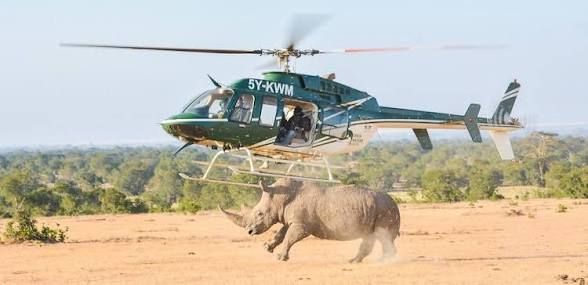Kenya’s Tourism Industry Grapples with Controversial KWS Park Fee Overhaul Amid Legal and Financial Turmoil
Nairobi, Kenya – November 14, 2025
Kenya’s vital tourism sector is facing mounting challenges due to recent changes in the Kenya Wildlife Service (KWS) park fee payment system and rates, which industry stakeholders argue are burdensome, non-transparent, and potentially unlawful.
Implemented without adequate consultation, these modifications have sparked widespread criticism for exacerbating operational costs and threatening the competitiveness of Kenya’s world-renowned safari destinations.
Background on the Fee Changes
In September 2025, KWS gazetted new conservation fees under the Wildlife Conservation and Management (Access and Conservation Fees) Regulations, 2025, set to take effect on October 1.
This marked the first major fee increase in 18 years, aimed at addressing a reported Sh12 billion funding shortfall for wildlife conservation. The revisions include significant hikes across various park categories:
- Premium Parks (e.g., Amboseli, Lake Nakuru): Fees for Kenyan residents rose from Sh430 to Sh1,500, while non-residents now pay Sh11,660 (up from Sh5,570).
- Mid-Tier Parks (e.g., Meru, Aberdare): Local fees increased to Sh800, with international visitors facing Sh9,070.
- Special Parks (e.g., Hell’s Gate): Entry for residents is now Sh500.
- Nairobi National Park: Residents pay Sh1,000 (from Sh430), and foreigners Sh10,360.
Additional charges for activities, vehicles, and packages have also been introduced, with projections estimating annual revenue growth from Sh7.4 billion in 2024 to Sh16.6 billion. KWS defends the updates as essential for sustaining conservation efforts, including anti-poaching initiatives and habitat protection.
However, the rollout has been marred by controversy. On October 2, 2025, the Milimani High Court issued a temporary order suspending the new fees following legal challenges from tourism operators, citing inadequate public participation and potential economic harm.
Despite this, reports indicate that KWS has continued to enforce aspects of the system, including a new payment platform.
Key Industry Grievances
The Kenya Tourism Federation (KTF) and other stakeholders have voiced strong objections, highlighting several issues that they say undermine trust and viability in the sector:
- Ignored Court Order: The new fees and system were pushed forward despite the October 1 court ruling barring implementation, forcing operators with pre-existing bookings to absorb unexpected costs.
- New Payment Platform and Hidden Fees: The shift from the government’s eCitizen platform to an unidentified third-party system has introduced a “hidden” 5% gateway fee on card transactions, only revealed at checkout. Industry estimates suggest this could result in over Sh370 million in annual losses for the sector. Critics argue the fee lacks legal justification and discriminates against high-volume payers.
- Inflated Exchange Rates: For international payments, KWS applies a USD to KSh exchange rate of approximately 135, higher than the Central Bank of Kenya’s mean rate of around 129, adding further financial strain.
- Restricted Payment Options: The removal of bank transfers limits flexibility for corporate accounts and large group bookings, as Visa cards and M-Pesa cap transactions at Sh300,000. This is particularly problematic during peak seasons when payments can exceed these limits.
- Lack of Stakeholder Consultation: Changes were rolled out without input from tourism players or the public, eroding transparency and potentially violating regulatory requirements for public participation.
These grievances have fueled fears that Kenya’s tourism industry – a key economic driver contributing billions in revenue and supporting thousands of jobs – could lose ground to competitors in East Africa, such as Tanzania and Uganda, where fee structures are perceived as more stable and operator-friendly.
Calls for Resolution and Broader Implications
KTF has demanded the immediate suspension of the gateway fee, reinstatement of the eCitizen platform, and full compliance with the court order. They also advocate for volume-based discounts and broader payment options to mitigate impacts on operators.
As of mid-November 2025, KWS has not publicly addressed the latest criticisms, though official documents on their website confirm the new fees’ implementation from October.
The ongoing dispute underscores deeper tensions between conservation funding needs and economic realities in tourism, with potential ripple effects on visitor numbers and wildlife protection efforts.
Industry experts warn that without swift resolution, Kenya’s global appeal as a safari destination could diminish, urging government intervention to balance conservation goals with sustainable business practices.
For the latest updates, stakeholders are encouraged to monitor KWS announcements and court proceedings.

